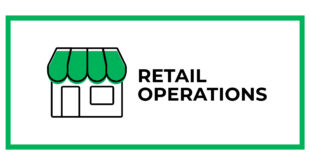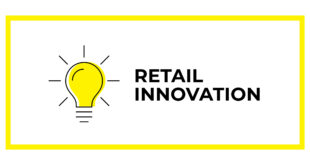Jim Rivas is the director of store operations at Friedman’s Home Improvement, which has four large-format home centers and is based in Santa Rosa, California. Rivas has worked in retail management nearly his entire career. When he was in his early 20s, he managed a store for Home Depot during a time of unprecedented growth for the company. Since returning to Friedman’s Home Improvement in 2009 (he worked at Friedman’s Santa Rosa store when he was in high school) Rivas has risen through the ranks, first managing the company’s Ukiah, California, store, until his promotion last year to director of store operations.
Stuff and People
“I categorize things that we do as stuff and people. The retail stuff is easy because once you know it, you can do it, and practice it, and you’re constantly learning new things and better ways to do things. But the people part is the hardest part for me.”
“I think the lower you can fly as a leader, the better it is to make an association or have empathy for what is possible. That’s what’s helped me: doing those entry-level jobs, whether it be loading steer manure or cleaning the bathrooms or even receiving product and unloading trucks. It takes a lot of coordination to make this symphony work, and all of the jobs are tremendously important. I think that helps me in the way I think as a leader.”
“The higher up you go in an organization, the less control you have of the outcome. So you have to depend more on your leadership skills. That’s why leadership is so different than managing, because the goal of leading people is to get them to want to do their absolute best and to work for you. I’ve had managers who have managed me but the real leaders who I have worked for I have wanted to give my absolute best.”
***
Shared Values and Courage
“The glue to effective teams is shared values. The rest is performing and executing. When we look at our leadership team today, we have shared values of integrity, honesty and respect for people and being confident and proud, and having professionalism and being courageous.
“I’ve always sought feedback on how I’m doing regarding my performance. Not everyone does that because of a lack of courage. Courage is not a single value, because it runs hand in hand with trust. In order for you to give someone honest feedback, they have to trust you. You have to have an environment where people feel safe. They have to know that the exercise you’re doing with them is for their growth and development. That way they can see it and associate that this is what’s going to make us better.”
***
The Home Depot Way
“There were big changes when [Bob] Nardelli came in. When Bernie [Marcus] and Arthur [Blank] were there, the training and development at Home Depot lacked a lot of structure to some extent. But your hands weren’t tied in getting things done. That’s a powerful thing for an employee, when they know they can take care of someone the way they need to be taken care of. Then they tend to do something right. Before Nardelli, I would work overnight to make sure everything was perfect. After Nardelli, there were strict limits to overtime. There was a lot of red tape.”
“You have to make connections and get buy-in when you’re making change. When I was at Depot, they flew us all down to Universal Studios for a meeting, where they told us that we were going to make the single biggest improvement to customer service in the company’s history. Then a construction crew showed up in my store a few weeks later and ripped out all of the cash registers and made them self-checkouts. I was mind-boggled, because it wasn’t explained how this was going to work, and according to who or what research?”
“When you are changing things, you have to be careful not to change the things that made you great. When I came to Friedman’s, it’s kind of like I had lived in the future and then stepped back in time. I quickly remembered everything I loved about working at Home Depot before all of the changes that were made. I truly believe that we have something very special here at Friedman’s, including a team who wants what’s best.”
***
Early Mistakes
“I wasn’t a very good listener in my youth. I was a super Type-A personality. A driver who didn’t have much consideration for others the way I do now. Whatever it took to get things done, I did, steamrolling my way through it all. I think that’s how I was thought of … nobody wanted to work for me. I was tough on folks, and I think I lacked empathy. Becoming a father changed me drastically. Being a father is the hardest thing anyone can do. It’s the ultimate leadership role by far.”
“I was a 24-year-old-kid running a $68 million business. Back then, I just didn’t know what people had to go through. I just didn’t have a lot of compassion, and I think that’s one of the biggest changes I’ve made through the years. I’ve learned compassion.”
***
Hiring Demands
“This business creates a tremendous demand and sense of urgency to hire people quickly. I think that’s a mistake. We have as many as 150 employees in a couple of our stores, and we have to hire to the season and bring people aboard so quickly. With the opening of our Petaluma store, we had to hire a bunch of people at the same time, so we used a recruiter to do some pre-screening and actually got a really good result from it.”
***
Master the Basics
“You have to master the basics before you go on to do the extra credit type of stuff. Right now we have a lot of people who are seeking extra credit or stretch assignment, and they haven’t mastered the basics. When we look at promoting leaders, we look at the different metrics they are responsible for. Some of those are not always rosy, and they are seeking stretch assignment or extra credit. You have to get good at the things that are the most basic for your business … being in stock, making sure we have great customer interactions, making sure we are writing good reviews and have good interpersonal skills, and that our people are engaged and know the product they are selling. Mastering the basics before you go for extra credit is definitely a big key to leadership. Yet in today’s world, we have people who are just trying to get ahead in a short period of time because of instant gratification. The basics are definitely the most important part of what we do.”
 Hardware Retailing The Industry's Source for Insights and Information
Hardware Retailing The Industry's Source for Insights and Information








